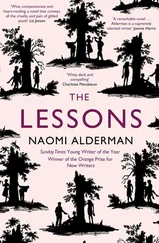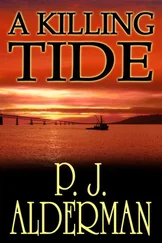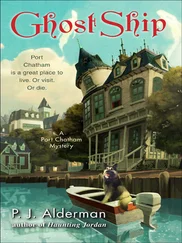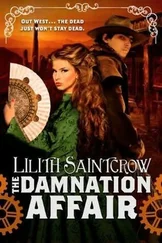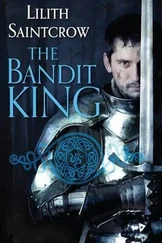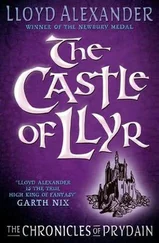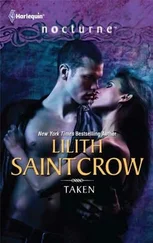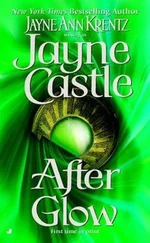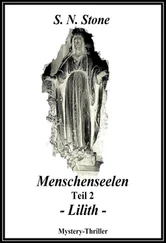1 ...8 9 10 12 13 14 ...24 The pack had also woken. Several young wolves, whose manes were as yet small and brown in colour, were dragging something across the ground and up, across the jagged rocks towards her. It was a chesol deer, tawny as the Plains grasses when they flowered. A number of other wolves – five, six – followed them; these carried groundapples in their mouths. Raw deer and fresh fruit, this was breakfast, Gry realised, when they had all climbed the rock of the throne and laid their burdens in front of her.
‘Wise creatures!’ said the Red Horse. ‘You have eaten my poor relatives, mixed with quail eggs and wild garlic in your Herdsman’s Comfort, Gry; so do not gag at this sacrificial deer. And the groundapple, intelligent choice! You know as well as I do that its juice is as good as fresh water.’
‘But I’m cold,’ moaned Gry.
The food helped warm her. As she ate, quickly swallowing the pieces of deer-meat which the wolves chewed from the carcass for her and sucking the acid juice from the groundapples, she saw that other yearling wolves had come to the deer and were tearing its skin into long strips and rough triangles. Soon, while the Wolf Mother directed them with little barks and sharp nips in their ears, the young wolves had picked up all the golden pieces of the deerskin and were laying them at her feet. Two were bold enough to drop their gifts in her lap.
Mogia wagged her tail and, cocking her head, gave Gry a lop-sided look.
‘Warm clothes,’ murmured the Red Horse.
Gry gathered up the bloody pieces of hide and, too modest to be a true member of Mogia’s pack, retired behind a rock and tried to make a garment from them. When she squatted to evacuate and relieve herself, she found fresh blood on the insides of her thighs – Svarog – Sky! It was her own blood: she should rejoice; she bent forward until her forehead touched the ground and gave thanks to Mother Earth. This blood-cleansing was another freedom, and nothing of Heron had remained inside her long enough to make a luckless, bastard child. Hastily, shivering, unburdened, she tore rags from her skirt and made a pad to soak up the blood. Next, the deerskin strips made footless leggings and, with the help of more rags from her skirt, the triangles could be fashioned into a shorter, thicker overskirt and a small shoulder-cape. She chewed holes for her makeshift cape-strings in the skin, tasting the fat and sinew, spitting out hairs and feeling as gorged as a well-fed wolf. So, dressed at last, she stepped out and showed her new clothes to the pack and the Horse. A cub barked once, quickly silenced by his mother, and the adult wolves howled an acclamation; but, deep inside Gry’s head, a low, delighted chuckle started and swelled – the Horse: as if a horse could laugh! Evidently, he could. She listened well – had she not heard that laugh somewhere before? In some place that was friendly, homely? In a place in which her father was alive and lively, Nandje, Son of Nandje, He Who Bestrides the Red Horse, Imandi of the tribe? Nandje’s laugh had been raucous, cackling; this, it was gentle, even cautious, in its happiness.
She remembered walking along the main street of the town of Vonta in the Near Altaish where Nandje and Lemani had taken her for the Horse Fair; she had been sucking a greengage lollipop when a boy her age had passed her and grinned, waving his own lollipop in the air, before he blushed and turned away, pretending to look in the window of a toy shop. Something in the display there had amused him and he had laughed aloud, a happy, bubbling sound: it was not that laugh.
That, until now, was the only time she had been out of the Plains.
Gry shook her puzzled head and, making a small fist of her right hand, thumped the Red Horse gently on his neck. In answer, he nuzzled in her breast.
‘Horse!’ she cried, and thumped again.
‘You are beautiful, even now,’ came the reply.
‘I am as wild as a drunken shaman after a spirit-feast,’ said Gry.
‘When you find a tarn or lake up in the hills and use it for your mirror – oh, you will! – you will see that I am right. But listen to Mogia. She says that, though you look like a deer, you are almost half a wolf for “eating meat with Us brings the wisdom of wolves, which men call cunning.”’
Mogia’s Story: Winter Hunger.
Take care. The road to true wisdom is long and hard. I was a cub in the years of Koschei’s Winter. Snow covered the Plains and the rivers were ice. Small birds fell dead from the skies and, for a while, we were content to eat them. Then came a day when all the birds were dead. We had eaten the land-animals long before: the deer, the heath-jacks and their kith and kin. The last mouse had been swallowed whole.
My mother called the Pack together and we left the Plains, journeying long and high into the Altaish, where the snow and ice endure for ever. Some of the wolves spoke against her, arguing that if we could not find food in the frozen Plains, what could there be to eat in the mountains? There was a fight – so bad that two wolves were killed in it, and wolves never kill their own: to this, the magician had driven us with his foul heart and fouler weather. The rest of the dissenters left the pack and turned into the forest where, they said, they were certain to find prey. We travelled on.
Soon the way grew grim. Great boulders made of ice reared themselves in front of us and the ice made hard stones of itself in the soft spaces between the pads of our paws so that we had many times to lie down in the cold and chew the ice away before we could walk on. It snowed, sometimes so hard that we lost our way and must, once more, lie in the bitter cold until the storm died and we could see. Four of the old wolves lay in their snowy nests and never got up again. Still my mother led us on, and higher.
We dared venture into the remote, Upper Altaish and here, as my mother well knew, we found great companies of mountain lemmings which, being animals of the cold and the heights, had not died out. We had a great feasting – taking care, by my wise mother’s orders, to leave enough of the creatures alive to breed new colonies, which they do most rapidly, in the time it takes for the moon to grow from a claw to an open eye; so we remained in the Altaish until Koschei’s power waned and the spring came, living as do men-farmers by taking care of our herds.
‘See, my Sisters and Brothers, my Daughters and Sons,’ said my sagacious dam, ‘the truth of our old saying For the strength of the Pack is the Wolf, and the strength of the Wolf is the Pack!
‘“But, woman-Gry, wolves’ wisdom will not serve you at all the turns,”’ said Mogia in the Horse’s familiar voice. ‘“You must consult your own ancients, the shamans at Russet Cross. I will lend you a guide –”’
Mogia broke off her whining in the Red Horse’s ear and howled once. A young, grey wolf came running to her side.
‘“This is my scout, my dear son Mouse-Catcher! – who loves a succulent mouse so much he hunted nothing else in his infancy, bounding over the long summer grass, high and low, like a heath-jack in his love-madness. Mouse-Catcher knows the salt wilderness. It is one of his hunting grounds. He loves a mouse with a salt savour. Hey! dear Cub,”’ and the great wolf licked her son’s ears lovingly.
Gry looked up at the Red Horse. He was nodding his head but, this time, she could not tell whether he meant to speak to her or was only ridding himself of the first flies of the morning which, attracted by the meat or by her strange, uncured skin clothing, were beginning to swarm about them.
It is the blood, she thought. Flies love to drink it – and I am stained with it, Heron’s, mine, and the chesol deer’s. Three have died – there was Heron and the deer; and there would have been a baby if I had not begun to bleed. Poor soul, it must hurry back to the Palace of Shadows and wait for a happier coupling to bring it to Malthassa.
Читать дальше

